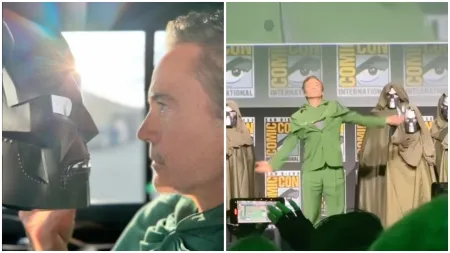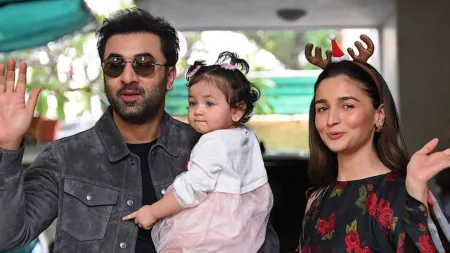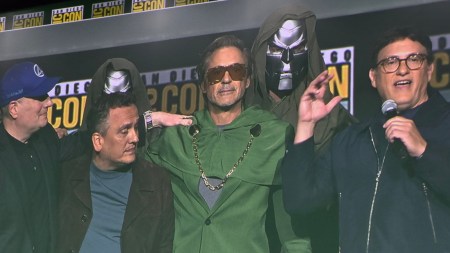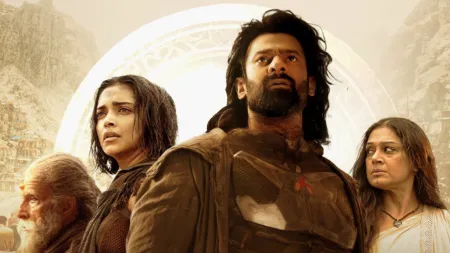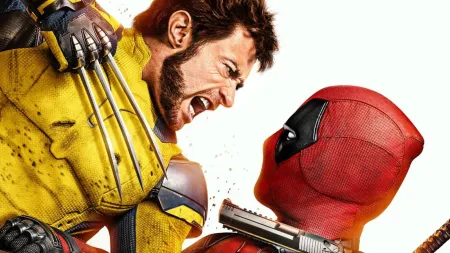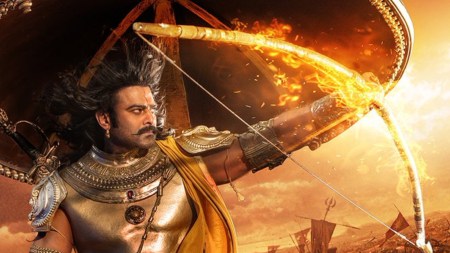Often in Indian cinema, there comes a superstar we idolise from afar, a superstar we want to emulate, and then a superstar we relate to. It is extremely rare to see a superstar that is a mix of all three. One such rarity is the multi-hyphenate talent Dhanush. Starting his career with Thulluvadho Ilamai (2002), Dhanush has grown into a powerhouse of talent.
Winning hearts all over the world with his inimitable performances, gorgeous looks, and unbridled charm, Dhanush is now at the crossroads of his career after hitting the landmark 50th film mark last Friday. Raayan, which is his second directorial, is winning rave reviews, and it is on the way to become one of his biggest commercial successes too.

One of the handful of actors in India to win two National awards for Best Actor before turning 40, Dhanush is celebrating his 41st birthday today. It is brilliant how Dhanush has shaped his career, even if he says it is all god’s plan. 10 years after his debut as an actor, Dhanush stepped into national prominence with Raanjhanaa. 20 years after his debut as an actor, he stepped into global prominence with his role as Avik San in Netflix’s The Gray Man, directed by the Russo Brothers. These journeys are well documented, and Dhanush has turned into an actor who somehow always finds himself as the flavor du jour across every year and every season. So, let’s look back at the highlights of his first decade as an actor, where he was chiselled and moulded into the Dhanush we now know. The years that first exemplified his unique blend of artistic talents.
ALSO READ: The Gray Man Movie Review – Despite two charismatic leads and an efficient Dhanush, the film is just serviceable
2003 – A Star is Born (Kadhal Konden and Thiruda Thirudi)
In his stellar filmography, Dhanush has often played the weird but somehow effective combination of ‘Loser-Lover’. But it all started with Selvaraghavan’s Kadhal Konden. When Dhanush’s Vinod looks at an empty space and enacts an imaginary conversation with Sonia Agarwal’s Divya, your heart goes out to him. When he eats a box of stale lunch, when he is ridiculed by his classmates, when we know about his childhood, when we realise what Divya really meant to him… your heart does go out to him. Then, Vinod turns into a modern day-Guna, and does things that make you despise him despite still having a soft corner. He became the person you wanted to hate, but just couldn’t.
Hitting the screens the same year as Kadhal Konden, Thiruda Thirudi showcased an all-important facet of Dhanush that would go on to represent one of the biggest strengths in his arsenal — Comedy. We have often seen that an actor can be a star because of their histrionics and stunt skills, but it is imperative that their comic flair is on point to become a superstar. Through Thiruda Thirudi, Dhanush exemplified this aspect of his talent spectrum. More importantly, he showed he could shake a leg like it was nobody’s business, and became the Manmadha Raasa for all ages.
Of course, both these films are peppered with garden-variety problematic tropes that, unfortunately, are seen in many films of those times.
 Dhanush in Kadhal Konden and Thiruda Thirudi
Dhanush in Kadhal Konden and Thiruda Thirudi
Anyway, watch Kadhal Konden to get the first glimpse of what Dhanush, in the hands of a brilliant filmmaker like Selvaraghavan, is capable of doing, and watch Thiruda Thirudi to know how the first seeds of a ‘commercial hero’ were sowed into his filmography. Basically, 2003 showed the world that Dhanush was not a flash in the pan, but a comet in the night sky. He was bright, illuminating, and most importantly, a rare occurrence.
2006 – The One-Two Punch (Pudhupettai and Thiruvilaiyaadal Aarambam)
Just like 2003, 2006 was once again, a one-two punch by Dhanush where he followed up the Selvaraghavan magic in Pudhupettai with a comedy commercial entertainer, Thiruvilaiyaadal Aarambam.
Pudhupettai continues to be the gold standard in the gangster genre with Selva writing a character that elevated Dhanush into the stratospheric levels of stardom after a couple of years of mostly critical and commercial disasters. As Kokki Kumar, Dhanush gave us a character that still is one of his best ever. It allowed him to display a gamut of emotions, and establish himself as an actor of repute. Pudhupettai gave Dhanush’s career the much-needed wind beneath his wings, and he started soaring from here, and reached an unshakeable place in Tamil cinema.
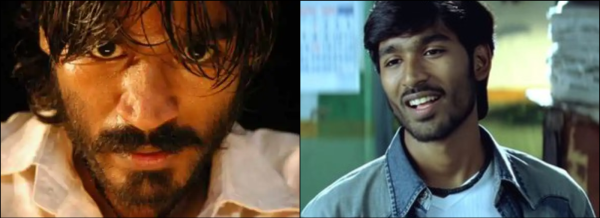 Dhanush in Pudhupettai and Thiruviliayaadal Aarambam
Dhanush in Pudhupettai and Thiruviliayaadal Aarambam
Dhanush soon followed it up with Thiruvilaiyaadal Aarambam that made him the darling of the masses who just wanted to go to a theatre and get entertained. This was a delicate balance, often aced by Kamal Haasan.
2007 – The first blood (Polladhavan)
Polladhavan gave us Vetri Maaran. Just like Pudhupettai, Polladhavan too was a gangster film set in Chennai. Just like Pudhupettai, Polladhavan too featured Dhanush in a role that finds itself in increasingly complex turmoil thanks to circumstances. Just like Pudhupettai, Polladhavan too showcased Dhanush’s maturity as a performer. But Polladhavan was so unlike Pudhupettai, and it showed how Dhanush and Vetri could do seemingly similar things but manage to make something so starkly different and yet, supremely entertaining.
And let me say it again…
Polladhavan gave us Vetri Maaran.
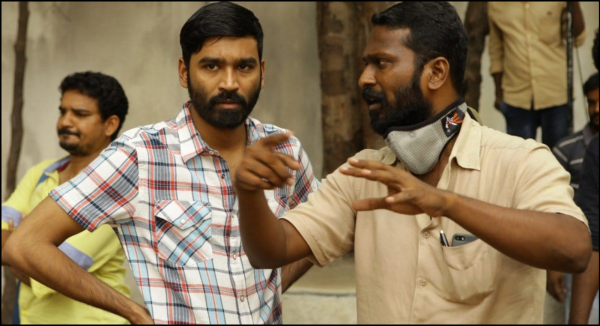 Dhanush and Vetri Maaran in Vada Chennai
Dhanush and Vetri Maaran in Vada Chennai
ALSO READ: The anatomy of Dhanush’s superlative performances in Vetri Maaran’s movies
2011 – Beyond the good and the bad (Aadukalam, Venghai, Seedan, Mappillai, Mayakkam Enna)
Dhanush has always been a man in a hurry. When many of his contemporaries were doing just a film a year, or so, he was a juggernaut of sorts. Since the start of his career, he has never had a year when a film of his hasn’t been released. Between 2007 and 2011, his career was a mixed bag. Yes, he had commercial successes with the “easy” remakes and “easier” masala films, but barring a Yaaradi Nee Mohini, it felt like Dhanush was just coasting. But it almost seemed like things were getting back on track in 2011. This was the first time he had five of his films finding its way to the theatres in the same year. Each of these five films were unique. Were they all good? Not really. Were they all different? Yes, indeed.
One had him star in the remake of demi-god Rajinikanth’s Maapillai, and the other remake, Seedan, had him play an actual god. Then, in Venghai, he surrendered to the vision of director Hari, who is one of the stalwarts in the commercial masala template films in Tamil cinema. By this time, Dhanush was also tired of remakes, and would go on to just star in one more in the next 13 years as an actor. Anyway, Maapillai, Seedan, and Venghai were bookended by films of Vetri Maaran (Aadukalam) and Selvaraghavan (Mayakkam Enna).
Aadukalam was Vetri-Dhanush’s second collaboration, and the Shakespearean tragedy won multiple National Awards, including the first for Dhanush. He was just 28. It was just coincidental that Kamal Haasan too was just 28 when he won his first National Award for Moondram Pirai.
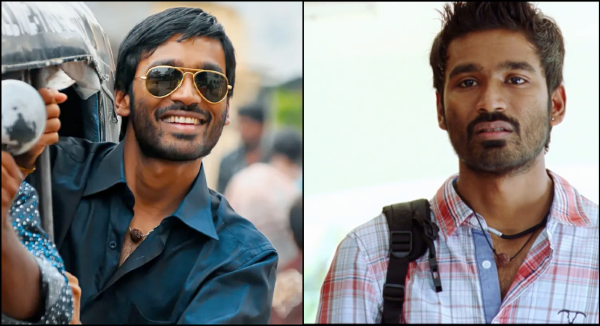 Dhanush in Aadukalam and Mayakkam Enna
Dhanush in Aadukalam and Mayakkam Enna
Through Mayakkam Enna, Selvaraghavan and Dhanush crafted an intricate relationship drama that continues to raise debates on social media about the dynamics explored in the film. While some swear by it, and some swear at it, there can be no doubt that Mayakkam Enna’s Karthik Swaminathan will find himself in any list that categorises Dhanush’s best performances.
2012 – The year that changed a lot (3)
3 was Rajinikanth’s daughter and Dhanush’s former partner Aishwarya’s debut as a director, and starred Kamal Haasan’s daughter Shruti Haasan in the lead role. It was Dhanush’s first film as a producer. It allowed him the power to orchestrate and mount a project on his own. He could get the cast and crew he wanted. He could decide the scale of his films.
3 was Dhanush’s first brush with autonomy in the business of making cinema. He would go on to make some of the most important films in Indian cinema, reintroduce actors who would go on to become stars, reinvent the persona of superstars, and win two more National Awards.
Oh, 3 introduced a new music director to the world. His name was Anirudh Ravichander, and he composed a little song called, “Why this Kolaveri Di…” and as they often say…
The rest is history.
Disclaimer: The copyright of this article belongs to the original author. Reposting this article is solely for the purpose of information dissemination and does not constitute any investment advice. If there is any infringement, please contact us immediately. We will make corrections or deletions as necessary. Thank you.
